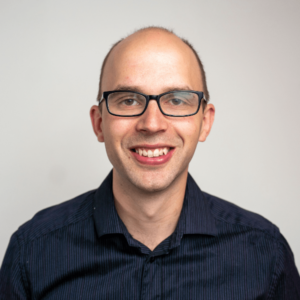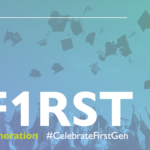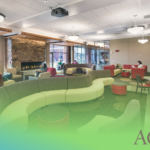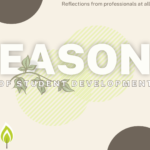![]() This content is brought to you by the Association for Christians in Student Development (ACSD), a volunteer membership organization committed to equipping and challenging faithful professionals to infuse their Christian faith into student development practice and scholarship. Thoughtful content such as this is made possible by volunteer contributions and the financial support of membership dues. Interested in becoming a member for more awesome content just like this? Join today by clicking here!
This content is brought to you by the Association for Christians in Student Development (ACSD), a volunteer membership organization committed to equipping and challenging faithful professionals to infuse their Christian faith into student development practice and scholarship. Thoughtful content such as this is made possible by volunteer contributions and the financial support of membership dues. Interested in becoming a member for more awesome content just like this? Join today by clicking here!
One reason I love working in higher education is because colleges and universities are an ideal place to “make disciples of all nations” (Matthew 28:19, ESV). With student mobility on the rise (Institute of International Education, 2023), rather than going to “all the world,” the people of different tribes, languages, and nations are coming to our campuses. It is like Pentecost in Acts 2, when people came to Jerusalem, miraculously heard Peter’s message in their own languages, repented, returned home, and spread the message that they had seen and heard. The church grew rapidly after Pentecost; we hope for a similar effect from international student education.
Being good hosts to international students on college campuses has been a priority for student affairs professionals. Research recognizes that developing strong social support systems on campus reduces levels of acculturative stress in international students (Yeh & Inose, 2003), so understandably we spend time and effort to help these students make connections, feel welcome, and have positive experiences during their time on campus. Of course, in Christian higher education, we also hope they leave our campus closer to Christ than when they arrived.
There are many reasons that higher education institutions may focus on international student education. It helps the budget and reputation. It can also demonstrate benevolence toward the student (such as, “Look at what we saved this student from!”). While these can be good, many motivations like this can be selfish.
What about a transcendent motivation for international student education? To phrase the question differently, why does international student education matter to God?
We should pursue international education because we want the church to be more international. That means as institutional hosts, we should be willing to be as shaped and affected by our international guests as we intend to shape them.
Make no mistake, making disciples of all nations is a wonderful reason to pursue international education, but we should aim higher than the impact of our own individual or institutional influence. We should pursue international education because we want the church to be more international. That means as institutional hosts, we should be willing to be as shaped and affected by our international guests as we intend to shape them. Beyond our campuses, the local churches attended by our students should be equally affected. While by no means an exhaustive list, here are a few areas of focus in pursuit of this ambition.
1. Help international students shape campus, church and local culture.
First, we want to provide a great welcome, then find ways to involve students and help make connections. As we do so, an important next step is to help international students have places of influence on your campus. Help them learn the host culture, but also provide opportunities for them to influence the culture as well. Include their voice in focus groups and encourage them to apply for leadership positions or student government.
Similarly, encourage international students to become involved in the local church. As they become more engaged, help them find leadership or further growth opportunities – participating in the worship band, leading Bible studies or small groups, and more.
In the local community, the presence and influence of international student populations can help foster better global citizenship. In rural or more isolated campuses, international students could be important ambassadors to the world beyond the local community or state, and potentially even form cross cultural partnerships.
2. Don’t only help international students “fit in,” – challenge host students to learn and grow.
International students should not come to our campuses only to receive an education; but their own experiences, culture, and perspective should significantly enhance the education and experience of host students and university. These opportunities are easier to take advantage of by promoting discussion groups (in and out of the classroom), group projects, and cultural exchanges. A popular program we run at LCC International University is called “Bring Your Own Story” where twice per month 1-2 students share with their floor communities stories of their past that have impacted and shaped them. Because we are an international campus, our students regularly hear from others with vastly different experiences that broaden their understanding of the world.
Hearing stories from others should impact and also challenge the host’s perspective. I’ll never forget stories I’ve heard from my own students of fighting in wars or fleeing their countries to escape danger. Too often, our understanding of the world, its conflicts, and significant events are shaped by US sources in fast moving news cycles that oversimplify and are often politicized and polarized. It lacks nuance and overlooks entire countries and conflicts that most directly impact the students coming to our campuses. Hearing their firsthand stories will broaden everyone’s understanding of the world and bridge divides.
Another important aspect of international education is to encourage our host students towards international experiences. Challenge local students to pursue international opportunities (beyond vacation) such as study abroad, short-term and long-term mission trips, or educational excursions. These provide cross-cultural experience and skills coveted by future workplaces. Even more importantly, they can be formative experiences for a student, their faith, and their ambitions. My own faith was stretched and strengthened by a 5-week mission trip with Cru to South Asia after my junior year of university. This experience changed the trajectory of my life, reshaped my ambitions, and contributed to me now working in international higher education abroad.
3. Use international education to strengthen the global church.
I have often heard from international students that worship in the local church is a significant cross-cultural challenge. A primary reason is a language barrier, but other factors include different worship, preaching, and liturgy styles. Yet, I believe the strengthening of the global Church should be one of the ultimate aims of Christians working in international higher education. Revelation 7:9-12 describes people from “every nation, from all tribes, and peoples and languages” worshiping Jesus. When that picture is fully realized, we won’t experience the discomfort experienced in cross-cultural contexts that we do now. Yet, it is possible to pursue that picture as we await the return of Christ. It requires all to examine our tendencies and ask, “What is essential for worshiping Jesus, and what is preference or comfort?” International education helps us find ways not just to be served by a church (in the form of the “right” music, sound, lights, preacher, preaching style, tea, and coffee) but instead serve and grow the church. Can we find ways on and beyond Sundays to gather to read God’s word, pray, and serve our neighbors as people of every nation, tribe, and language? A high school girl in my Lithuanian church recently shared about her short-term mission experience in South Africa: “I am thankful that even though I was sitting in a very different church, I felt the same presence of God.” International Education should be pursued with this higher aim.
“May God be gracious to us and bless us and make his face to shine upon us…that your way may be known on earth, your saving power among all nations. Let the peoples praise you, O Go; let all the peoples praise you!…May the nations be glad and sing for joy” (Psalm 67:1-4).
References
- Institute of International Education. (2023). Open Doors 2023: Fast Facts. U.S. Department of State, Bureau of Educational and Cultural Affairs. http://www.opendoorsdata.org
- Yeh, C. J., & Inose, M. (2003). International students’ reported English fluency, social support satisfaction, and social connectedness as predictors of acculturative stress. Counselling Psychology Quarterly, 16(1), 15-28.







